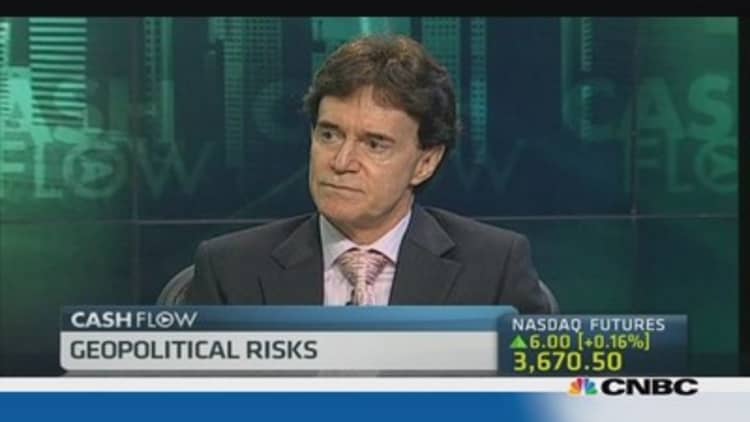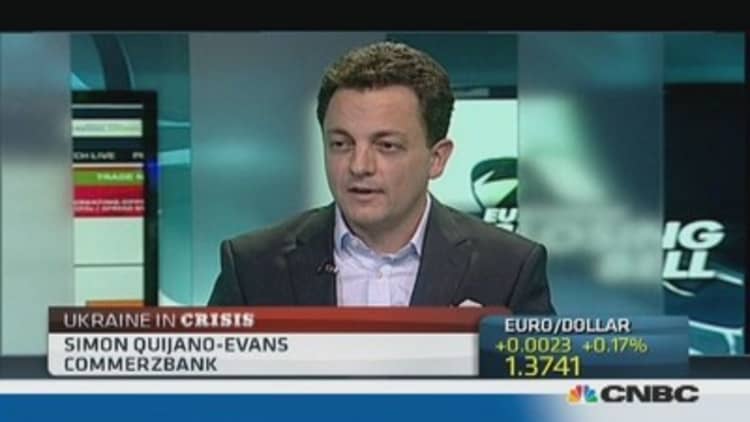
Russia will do all it can to support a normalization in Ukraine following the ousting of President Viktor Yanukovich after three months of street protests, Russia's finance minister told CNBC on Sunday.
"We are interested in, as soon as possible, a normalization of the situation in Ukraine and we will provide all the support for this," Russian Finance Minister Anton Siluanov told CNBC on the sidelines of the G-20 meeting of world finance ministers in Sydney.
The pro-Russian Yanukovich abandoned Kiev, the capital, to the opposition on Saturday while arch-rival Yulia Tymoshenko was released from prison. The former Soviet republic has been marked by violent protests, which have left more than 80 dead, according to media reports.
(Read more: Ukraine Parliament removes president, who flees Kiev)
Siluanov said Russia would supply gas to Ukraine at a "beneficial price" and future relations would be determined by the shape of the future government.
"Today briefly this subject was touched upon [at the G-20] and there were suggestions for Ukraine to address the IMF [International Monetary Fund] for financial assistance with the conditions for the implementation of structural reforms," Siluanov said.
"In any case the need for the implementation of structural measures is one of the key tests for the Ukrainian economy in the near future," he added.

Talking about recent turmoil in emerging markets, Siluanov said he agreed with comments made by U.S. Treasury Secretary Jack Lew at the G-20 meeting about the importance for developing economies to get their houses in order.
There has been some debate about whether developed economies such as the U.S. should be more mindful about the impact a scaling back of quantitative easing can have on international financial markets.
The Reserve Bank of India Governor Raghuram Rajan told CNBC on Saturday that a failure to address turmoil in emerging markets could have serious implications such as paving the way for another financial crisis.
(Read more: India central bank: Emerging markets 'on their own')
"No one was pointing fingers at anybody," Siluanov said, referring to the G-20 meeting.
"Actually the emerging markets had time to carry out their reforms, cut their fiscal deficit and remove the imbalances from their current accounts and balance of payments, and those who carried out these policies and reforms and implemented structural measures, they succeeded and those who didn't, they ended up in a difficult position," he added.
Siluanov said recent weakness in the Russian rouble was down to factors different to those that have battered other emerging market currencies in recent weeks.
The Russian ruble fell to an all-time low against a euro-dollar basket earlier this month, extending a slide that started in the middle of 2013 amid global risk aversion.
"You know it [rouble weakness] happened due to some uncertainties in the world economy and some slower growth in the Russian economy," Siluanov said.
"So in order to ensure the savings both the business enterprises and the general public looking at the other markets that go through uncertainty and unsustainability decided to convert some of their savings from the national currency into the foreign currency," he added.

